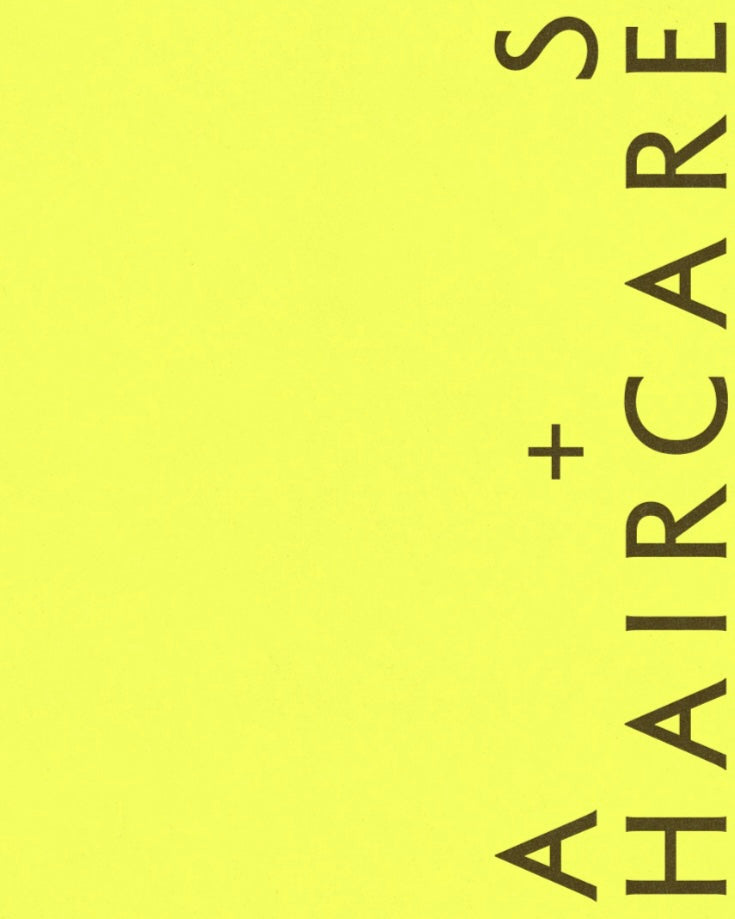
Understanding the Scalp Microbiome: The Key to Healthy Hair
By Joanna Wang
When it comes to hair care, the focus often lies on the strands themselves—shiny, smooth, and strong.
But the secret to truly healthy hair starts at the root—literally.
The scalp microbiome, an intricate ecosystem of microorganisms living on your scalp, plays a pivotal role in hair health. Let’s dive into what the scalp microbiome is, why it matters, and how you can nurture it for healthier hair.
What is the Scalp Microbiome?
The scalp microbiome is a community of bacteria, fungi, and other microorganisms that naturally reside on your scalp. Much like the gut microbiome, this ecosystem helps maintain balance and protect against harmful invaders. A healthy scalp microbiome supports vital functions such as:
- Regulating oil production
- Preventing dryness and irritation
- Maintaining the scalp’s pH balance
- Supporting strong and healthy hair growth
When this balance is disrupted—due to factors like harsh hair products, pollution, or stress—it can lead to common scalp concerns such as itchiness, excessive oiliness, or even hair thinning.
The Science Behind the Scalp Microbiome
Research has increasingly highlighted the importance of the scalp microbiome in dermatology and trichology. A study published in Nature Reviews Microbiology explains how microbial communities on the skin, including the scalp, interact with the immune system to protect against pathogens and maintain skin health (source).
Another study from Frontiers in Cellular and Infection Microbiology emphasises the role of a balanced microbiome in preventing conditions like seborrheic dermatitis and dandruff (source).
How A+S Haircare Supports the Scalp Microbiome
At A+S Haircare, we understand that healthy hair starts with a balanced scalp. That’s why our products, like the Cura Oily Scalp Shampoo, are formulated with microbiome-supporting ingredients, including:
- Prebiotics: Feed beneficial bacteria to maintain balance.
- Willow Bark Extract: A natural antimicrobial that selectively targets harmful bacteria.
- Niacinamide: Helps regulate oil production and strengthens the scalp barrier.
- Essential Oils: at low levels to procide gentle antimicrobial benefits without disrupting the microbiome.
These natural, biodegradable, and EWG-rated green ingredients ensure your scalp’s ecosystem remains intact while delivering effective results.
Tips for Maintaining a Healthy Scalp Microbiome
Here are some practical steps you can take to care for your scalp microbiome:
- Choose Gentle Products: Avoid shampoos with harsh ingredients.
- Maintain a Consistent Routine: Regular cleansing and hydration support a balanced environment.
- Protect Against Environmental Stressors: Use protective hairstyles or hats to shield your scalp from pollution and UV damage.
- Eat a Balanced Diet: Include foods rich in probiotics and nutrients that promote skin health.
- Avoid Over-Washing: Frequent washing can disrupt the natural oils and microbiome balance on your scalp.
- Avoid Under-Washing: wash your hair once every 3 days to maintain a healthy microbiome. Dry shampoo is not a replacement for washing.
Why the Scalp Microbiome Matters for Hair Growth
A disrupted microbiome can lead to inflammation, clogged hair follicles, and even hair loss. By nurturing your scalp’s ecosystem, you create the ideal environment for hair to thrive. Think of it as the foundation upon which strong, healthy hair is built.
Final Thoughts
Understanding and caring for your scalp microbiome is a game-changer for achieving your hair goals. At A+S Haircare, our mission is to provide products that not only address specific hair concerns but also support the natural balance of your scalp.
Ready to start your journey to a healthier scalp? Explore our Cura Oily Scalp Shampoo, designed to work in harmony with your microbiome, and experience the difference.
For further reading on the scalp microbiome, check out these peer-reviewed studies:
- The Skin Microbiome and Its Role in Dermatology (Nature Reviews Microbiology)
- The Role of the Microbiome in Seborrheic Dermatitis and Dandruff (Frontiers in Cellular and Infection Microbiology)
